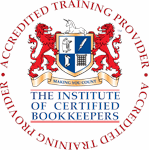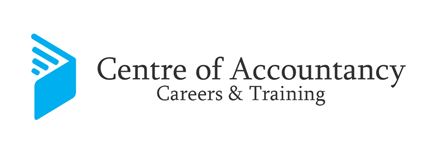Certificate in Bookkeeping ICB Level 2
Online & On-SIte
Centre of Accountancy
Summary
You can pay via Finance 0% APR
- ICB Level 2 Certificate in Bookkeeping - Free
- Exam(s) / assessment(s) not included in price, and must be purchased separately
- Tutor is available to students
Add to basket or enquire
Overview
Bookkeeping Course / Certificate in Bookkeeping: The Level 2 Certificate in Bookkeeping covers the basic principles of single and double entry bookkeeping and its application to business. Upon completion of this qualification candidates will be able to carry out the role of an employed assistant bookkeeper.
Certificates
ICB Level 2 Certificate in Bookkeeping
Digital certificate - Included
You will receive the certificate once pass all three exams
Course media
Description
CONTENT
Level 2 Certificate in Bookkeeping is comprised of Three Units (A1, A2, A3). In order to qualify Level 2 Certificate in Bookkeeping you will need to pass Assessments for all three Units (A1, A2, A3). The contents of the three units are stated as follows
A1 – Basic double entry bookkeeping to trial balance
- Underpinning knowledge
- Knowledge of the different categories of business that exist
- Terms in bookkeeping (assets, liabilities, etc.)
- Banking procedures
- Understanding the different categories of VAT (standard, reduced, zero, exempt, outside the scope)
- Calculation of the value of the capital investment for a sole trader
- Calculation of business documents including calculation of VAT
- Showing an understanding of the effect of entering transactions into a bookkeeping system for sales, purchases, overheads, capital items, returns, personal items, etc.
- The effect of making and receiving payments including bank, cash and petty cash transactions
- Calculation of account balances
- Production and explanation of a trial balance
A2 – Further double entry bookkeeping to trial balance
Home /place of work-based assessment to include:
- Underpinning knowledge
- Ethics
- Legislation relevant to the bookkeeper
- Accounting concepts
- Further double entry including the following
- Topics from A1
- The content of control accounts
- Writing off a bad debt
- Construction Industry Scheme
- Posting non-sole trader entries (subscriptions, donations, drawings of partners, directors’ loan accounts, etc.)
- Entry of payroll journals
- Calculation of the value of a suspense account in a system that does not balance
- Reconciliation of debtors, creditors and bank balances
- Correction of errors that do not affect the trial balance
- Production and explanation of a trial balance
A3 – Data entry to Trial Balance using software
Computerised accounting software package to include:
- Opening of entries
- Setting Up a New Business on software
- Setting up Inventory Codes
- Setting up New Customers/Suppliers
- Posting of Invoices with Discounts
- Customer Invoicing Procedure
- Supplier Invoices
- Corrections and Transaction Editing
- Customer Receipts & Supplier Payments
- Customer Receipts
- Payments on Account
- Bad Debt Write Off
- Bank Reconciliation
- Wages & Salaries
- Cash Account & Petty Cash Account
- Allocating Credit Notes
- Entry of cash and credit transactions
- Production of a trial balance
- Production of reports for debtors, creditors, bank, VAT and the audit trail
Who is this course for?
The Level 2 Certificate in Bookkeeping is aimed at those who are new to bookkeeping and have little or no previous knowledge or experience. Successful candidates will be able to demonstrate a full understanding of the concepts of double entry bookkeeping and its place in modern business, enter transactions into a bookkeeping system and produce an initial trial balance. They should be able to reconcile sales and purchases ledger balances against the relevant control accounts and reconcile the bank account. They should also be able to identify and correct errors present in the system.
Requirements
PRE-REQUISITES
There are no formal entry requirements to the Level 2 Certificate in Bookkeeping and no prior bookkeeping knowledge is assumed at this level. However, candidates must have basic numerical skills and a good understanding of the English language.
Career path
SUITABLE JOB ROLES
- Bookkeeper
- Accounts Assistant
- Finance Assistant
- Accounts receivable
- Accounts payable
Questions and answers
Reviews
Currently there are no reviews for this course. Be the first to leave a review.
Legal information
This course is advertised on reed.co.uk by the Course Provider, whose terms and conditions apply. Purchases are made directly from the Course Provider, and as such, content and materials are supplied by the Course Provider directly. Reed is acting as agent and not reseller in relation to this course. Reed's only responsibility is to facilitate your payment for the course. It is your responsibility to review and agree to the Course Provider's terms and conditions and satisfy yourself as to the suitability of the course you intend to purchase. Reed will not have any responsibility for the content of the course and/or associated materials.



